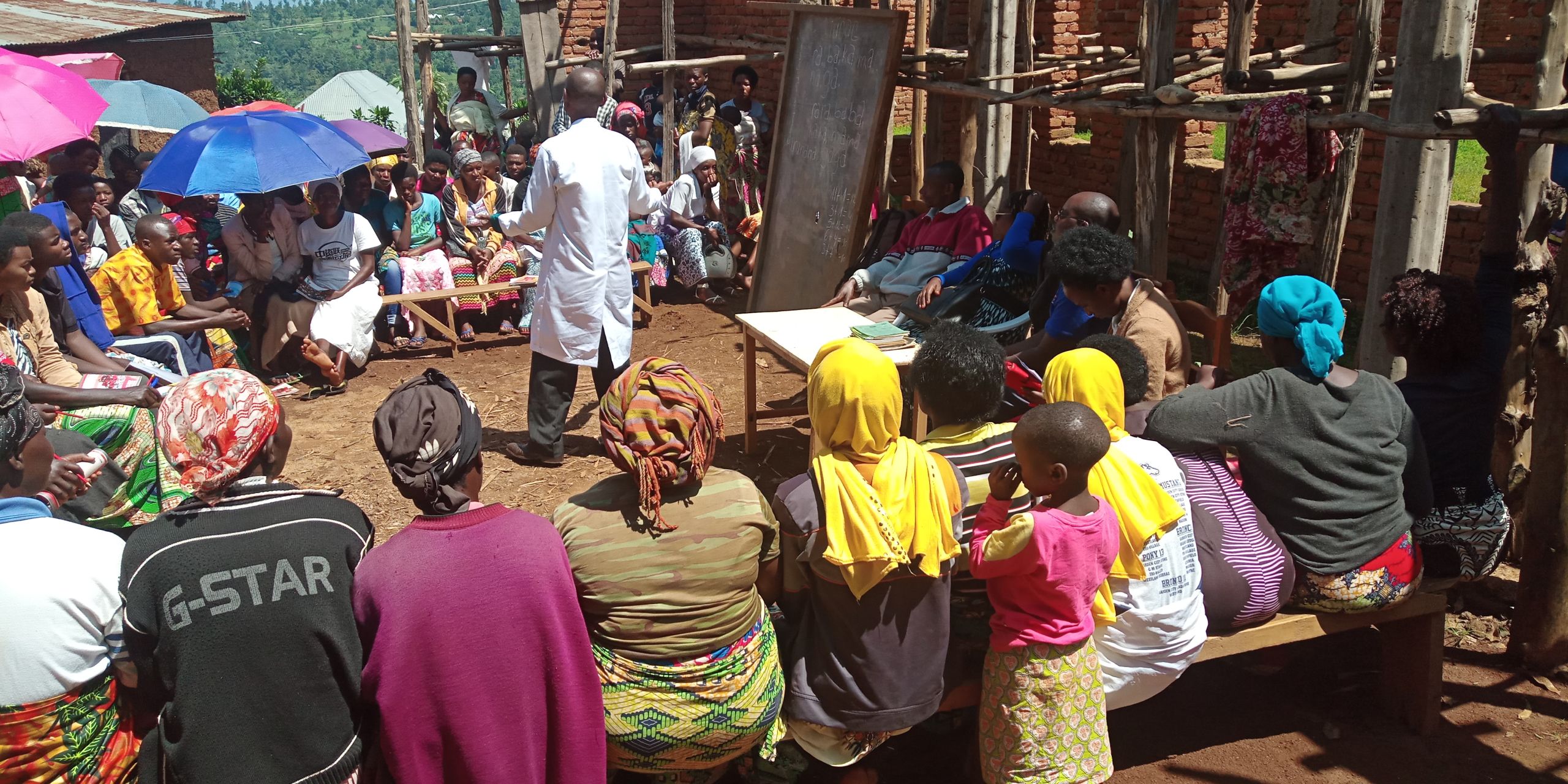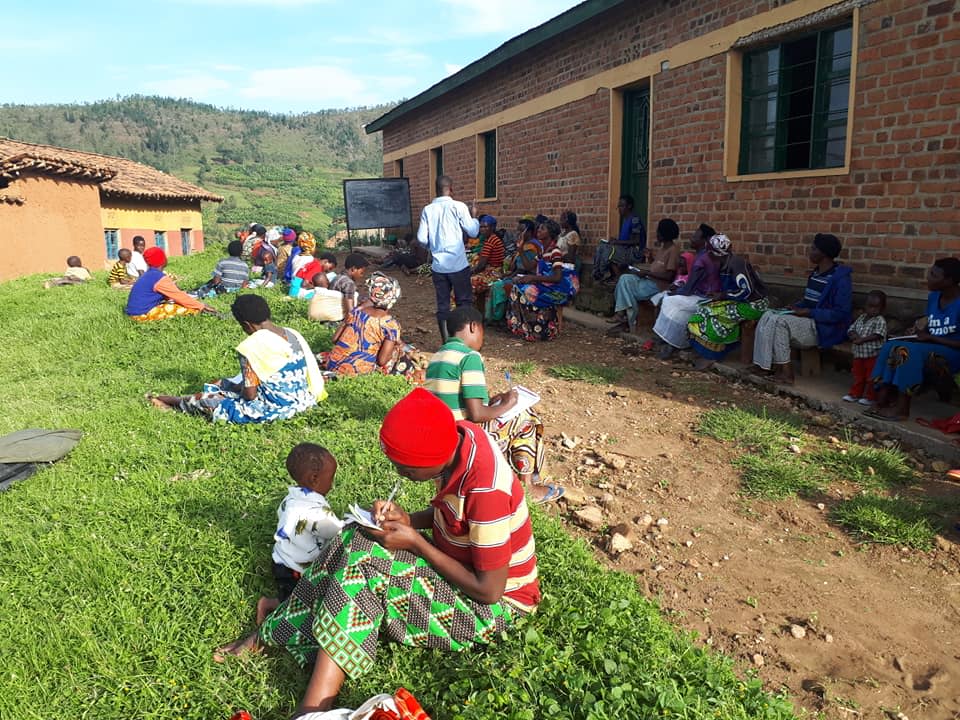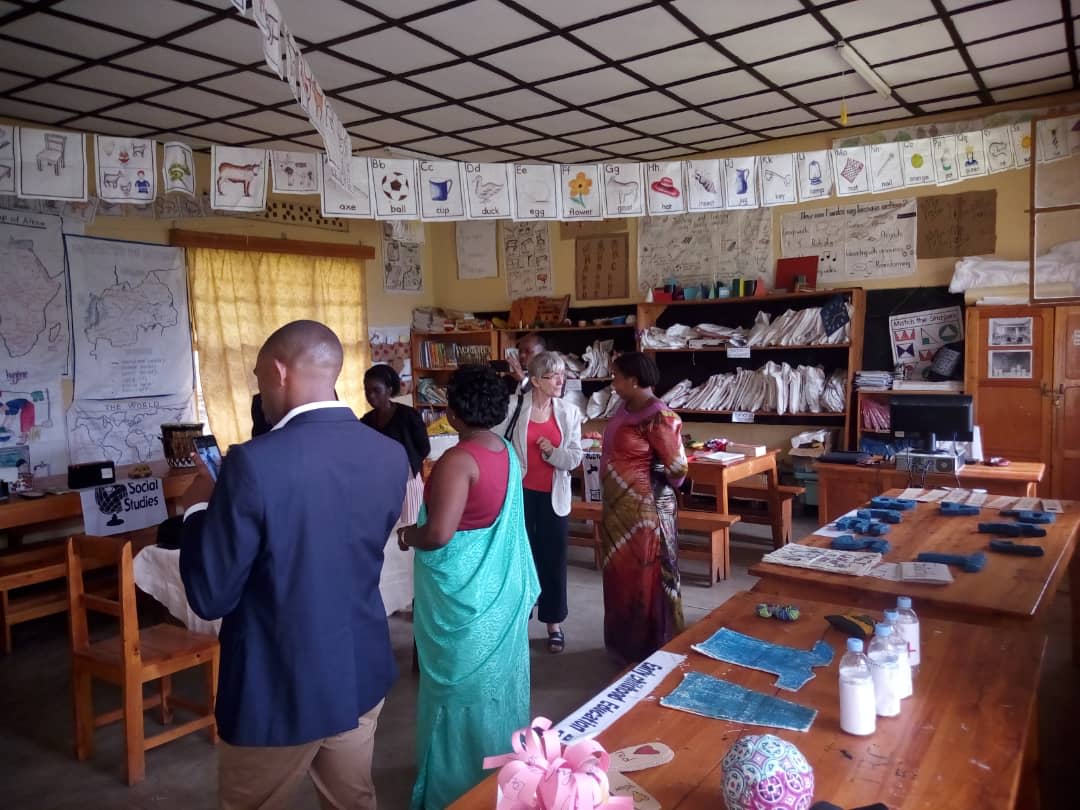Rwanda: Learning to read means learning to live better
Supporting adult learners in Rwanda to improve their life skills

In a country where only a third of adults have completed primary school and nearly a third cannot read or write a short note, delivery of adult literacy classes depends heavily on untrained community tutors, many of whom have only completed primary school-level education.
Literacy centres in Rwanda are generally located in churches, but some are also held in the open. Most are poorly equipped and lack basic learning resources. As a result, few adult literacy learners develop skills that would enable them to have them greater autonomy and create a problem-solving mindset. Without these, individuals cannot secure better employment, often feel marginalised within their communities, and rely on day farm labouring or subsistence farming to survive.
How local context impacts delivery of adult literacy in Rwanda
Applied education research led by Professor Pamela Abbott, Dr Aileen Ackland, and Dr Peter Mtika from the University of Aberdeen, combined expertise in adult literacies education with an in-depth knowledge of Rwandan everyday social practices.
Pamela Abbott, Director of the Centre for Global Development, School of Education, collaborated with Rwandan colleagues from the Institute of Policy Analysis and Research-Rwanda (IPAR-Rwanda) to build a detailed understanding of everyday life in Rwanda, highlighting the impacts on the poorest and most deprived communities, where the majority of adults with poor literacy skills live, and identified that, due to a lack of basic literacy, they have restricted abilities in simple but essential tasks, such as understanding simple doctor notes or reading road signs.
Dr Aileen Ackland examined the relationships between theory, policy, and practice in a period of reform in adult education in Scotland on adopting the "Social Practices Approach" (SPA). With the insights gained from this research, Drs Ackland and Mtika worked with a team of teacher educators from the University of Rwanda to establish an approach for professional development of adult literacy teacher educators, tutors, and volunteers. This University is the only public university that provides a pre-service degree for training tutors for the 13 teacher training colleges (TTCs) in the country.
By combining these bodies of research, the team of Aberdeen researchers successfully leveraged funding worth nearly £1.2 million from the Scottish Government for a programme of applied research titled Fostering a social practice approach to adult literacies for improving people's quality of life in Western Rwanda. The Western Province was chosen due its status as the poorest province in Rwanda, with 69% of the population living in poverty and 88% of the population living in rural areas.

Enhancing the knowledge and skills of adult literacy practitioners
Abbott, Ackland and Mtika recognised the value of SPA and used this approach to build capacity at the University of Rwanda by training five established academic staff members, enabling the University to provide pre-service and in-service teacher training, both in delivering adult literacy classes and in training community literacies tutors.
Ackland used her expertise on SPA to collaborate with teacher educators from the University of Rwanda in developing the curriculum for the country’s first-ever qualification aimed at adult educators and validating a professional postgraduate diploma intended to deliver a customised framework for training tutors in order to enable them to train other people.
This "train the trainer" model introduced a sustainable element into the curriculum, enabling those who have completed the postgraduate diploma to train community literacies tutors (volunteers) and as such has been successfully rolled out to teacher training colleges in the Western province. The tutors from Western Province that took and passed the diploma are now training community literacy classes in Southern, Western and Northern Provinces. The model has also been adopted by the Association Rwandaise des Travailleurs Chrétiens Féminine (ARTCF Rwanda), a local NGO that, as part of its work, delivers adult literacy classes.
The professional postgraduate diploma informed by Aberdeen research was validated by the University of Rwanda Senate and is now an approved element of the Rwanda National Qualifications Framework for Higher Education (RNQFHE). The qualification has enhanced the knowledge and skills of adult literacy practitioners, increased adult literacy levels, and has improved the quality of life for both tutors and learners. This work has also provided a scientific evidence base to guide the implementation of the Rwandan governments’ 2014 Adult Education policy, an important step forward towards realising Educational policy targets in the country.

Literacy skills bring multiple benefits
During project evaluations, tutors described the SPA approach as "much better" than previous ones that "did not work very well" because it supports adult learners to "discuss their problems and come up with ideas as to how they can help themselves".
With this model in place, 6,190 learners graduated from a programme using the SPA taught by a trained tutor and a further 6,132 were awaiting examination by December 2020. The overall student satisfaction was over 90%. Adult learners said they gained basic knowledge (writing, reading, counting and ICT) in a short time, learned how to collaborate with others and feel more trusted by their communities.
Community engagement research, carried out by IPAR-Rwanda, found that learners and community tutors pointed to improved knowledge and life skills that go beyond basic reading and writing, such as family planning, health management, environmental protection, and financial management. Many tutors and learners accessed financial support to grow their food and started income-generating projects.

Impact
- The project has enabled the University of Rwanda and teacher training colleges to implement a new model for training community literacies tutors and has contributed to the Rwandan government’s mission to improve adult literacy levels and enhance wellbeing in the country.
- Abbott, Ackland and Mtika built capacity in Social Practices Approach at the University of Rwanda by training five established academic staff members and enabling the University to provide pre-service and in-service teacher training for teaching adult literacy classes and training community literacies tutors.
- Tutors have described the approach as "much better" than previous methods because it supports adult learners to "discuss their problems and come up with ideas as to how they can help themselves to overcome them".
- By December 2020, 6,190 learners had graduated from a programme using the Social Practices Approach taught by a trained tutor and a further 6,132 were awaiting examination.
- Besides reading, writing, and counting, learners and community tutors point to improved knowledge and skills of planning and cooking a balanced diet, strategies to prevent HIV/ AIDS, family planning strategies, health management and sanitation, environmental protection and crop management, and financial management.
- The research has influenced national (Ministry of Education, Rwanda Education Board) policy, and in turn informed approaches for implementation of adult basic education in three districts (Karongi, Rabavu, Rusziz) by demonstrating the importance of having trained tutors and of using a pedagogy that engages learners and gives them skills that they can use in their everyday lives.
Publications
More…or less? Towards a Critical Pedagogy of Adult Numeracy.
Overcoming Poverty and Inequality: Rwanda’s Progress towards the MDGs.
Gender Analysis for sustainable livelihoods and participatory governance.
The Promise and Reality of Women's Rights in Rwanda.
Failing Adult Learners: Why Rwanda’s Adult Literacy Education is not Delivering.

